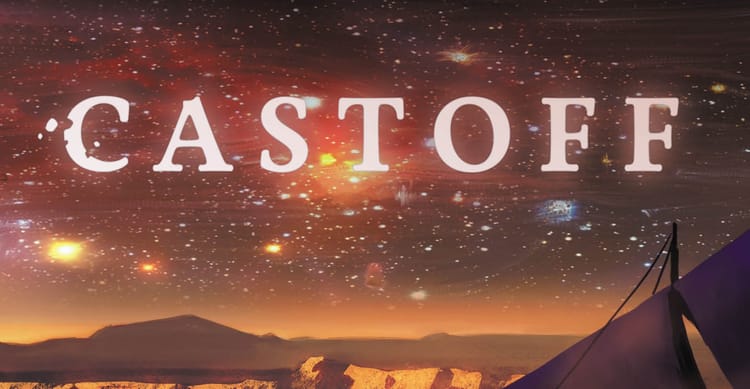Personal Canons: Mama Day
When I first read Mama Day by Gloria Naylor, I’d never read anything like it. I think that’s still true — I can’t think of a single thing I’ve read that fits into the same grooves that this book has worn into the universe. It’s a story of star-crossed lovers, magic, tragedy, and perseverance. Nisi Shawl has listed it as an essential read for students of Black SFF. Mama Day is an achingly brilliant novel, with rich, humid prose and interweaving narratives that in many ways make the notion of ‘voice’ seem shallow and limited.
I was afraid to revisit this book in preparation for writing about it, because I’ve been in a writing slump and didn’t want to read something that would give fuel to the you’ll never be able to write like that so why bother that’s been slowly burning a hole through my brain this past couple of months. Also, because I’m always afraid to lose an old favorite to newly-recognizable problems in representation. But a reread was important: it’s been long enough since I last read it that I needed to make sure I was remembering things right, and I needed to make sure that I was approaching this piece of my own personal canon responsibly.
I’m not qualified to comment on the way this book is so deeply about Black history in the U.S., Black community, and especially Black womanhood. There is a great deal of scholarship and study by Black authors on those facets of the novel and more — click through those links for a start, and if you missed it at the top, be sure to check out Nisi Shawl’s piece as well.
Here’s what I do feel qualified to comment on: The prose is staggering, the narrative is exquisite, and the characters are wrought with an honesty and depth that will always be a craft benchmark to me. Beyond all of the finicky ways I can think of to say that Naylor could write like a motherfucker, the story itself is brilliantly plotted and brilliantly executed. There’s magic in this book. It sings.
But the off notes in that song snagged at me now in a way that I know they didn’t when I was younger. A fat villain is treated as grotesque; queerness and gender nonconformity is, in parts of the narrative, a punchline that lands on the dismissive side of cruel. One of the main characters, Cocoa, spends a large part of the early sections of her narrative describing everyone around her in derogatory food-language that pinged my contemporary-reader-alarms.
Returning to this story was not easy, in no small part for the same reasons behind the notion that you can’t go home again. I’ve changed since the last time I read this book, as a person and as a reader, and returning to its pages confronted me with the person I used to be. I had to ask myself some hard questions when those alarms sounded in my head. How could I have failed to react to them on prior visits to this novel? How could I have forgotten about them so thoroughly as to be startled by them now?
I kept reading, because I wanted to write about this book and I’m nothing if not twice-over stubborn. I came to a scene in which Cocoa is on a date with a strait-laced man named George, and the date is not going well. George’s narrative declares that Cocoa is “one of the youngest — and most even-handed — bigots I’d ever met”. He asks her why she refers to people as food: “stuff you chew up in your mouth until it’s slimy and then leave behind as shit the next day.”
Cocoa is taken aback, but George keeps asking, with frank curiosity that disarms her enough to get her to finally reply honestly:
“I was scared when I came to this city. Really scared. There were more people living on my one block than on the whole island where I grew up […] A whole kalaidoscope of people — nothing’s just black and white here like in Willow springs. Nothing stays put. So I guess the way I talk is my way of coming to terms with never knowing what to expect from anything or anybody. I’m not a bigot, but if I sound like one, I guess its because deep down I’m as frightened of change and difference as they are.”
Reading that passage gave me a quick high of relief. Maybe I didn’t remembered this book the wrong way. Maybe I wasn’t previously comfortable with the in-narrative bigotry that so startled me upon my return. Maybe there are actually no problems with this book I love so much.
The comfort I felt was, in many ways, an expression of a kind of selfishness I bring to reading these days. That passage was confronting things from earlier in the narrative that had made me uncomfortable, and I’ve grown accustomed in the past few years to a sense of stress and catharsis when it comes to bigotry in narrative. I want to see it acknowledged and addressed to keep me from feeling a sense of discomfort and complicity. Now as ever, I want my sensibilities protected.
But that’s not what that scene is for. It’s not a moment of education for the reader, or a moment of catharsis that will allow us to forgive a central character for thinking and saying awful things. It’s not a moment of change or transformation. It’s simply an honest, heartfelt, slightly antagonistic conversation between two people who aren’t sure whether they like each other.
And that’s what this book does, through and through, over and over again. It presents relationships and stories and people without bending them into a shape the reader will be able to easily, thoughtlessly consume. Alternating POVs structure the book as a conversation between two people, or as a conversation within a community. All of this is woven together so tightly that reading the book feels like eavesdropping. The narrative itself rejects the very concept of narrativization.
This is not a book that is concerned with my sensibilities, or yours, or anyone’s. Mama Day exists on its own terms.
As a reader, this was unfamiliar and refreshing. As a writer who desperately overthinks the sensibilities of their readers at all times (even when writing this piece) (okay, especially when writing this piece), it came as a jolt. This novel demonstrates that a story, like a person, can exist for itself. It can be written in a way that allows its flaws to live alongside its strengths without either of them muddying or negating each other. It doesn’t have to be cruel and it doesn’t have to be kind.
It can just be.
Mama Day has long been a part of my personal canon because of its intricate structure, gorgeous prose, and heady atmosphere. I knew that returning to the story of George and Cocoa would set a new high bar for stylistic writing and narrative development. I couldn’t have predicted that it would rattle the bones of my writing philosophy.
I was afraid to revisit the book because I was afraid to lose it, but I found that Mama Day was never mine to lose. It is simply, like home and like history, mine to visit.
Personal Canons is a series exploring the works of genre fiction that have shaped us as readers, writers, and people. This series features contributions by established authors, new and aspiring authors, readers, and fans.






Member discussion